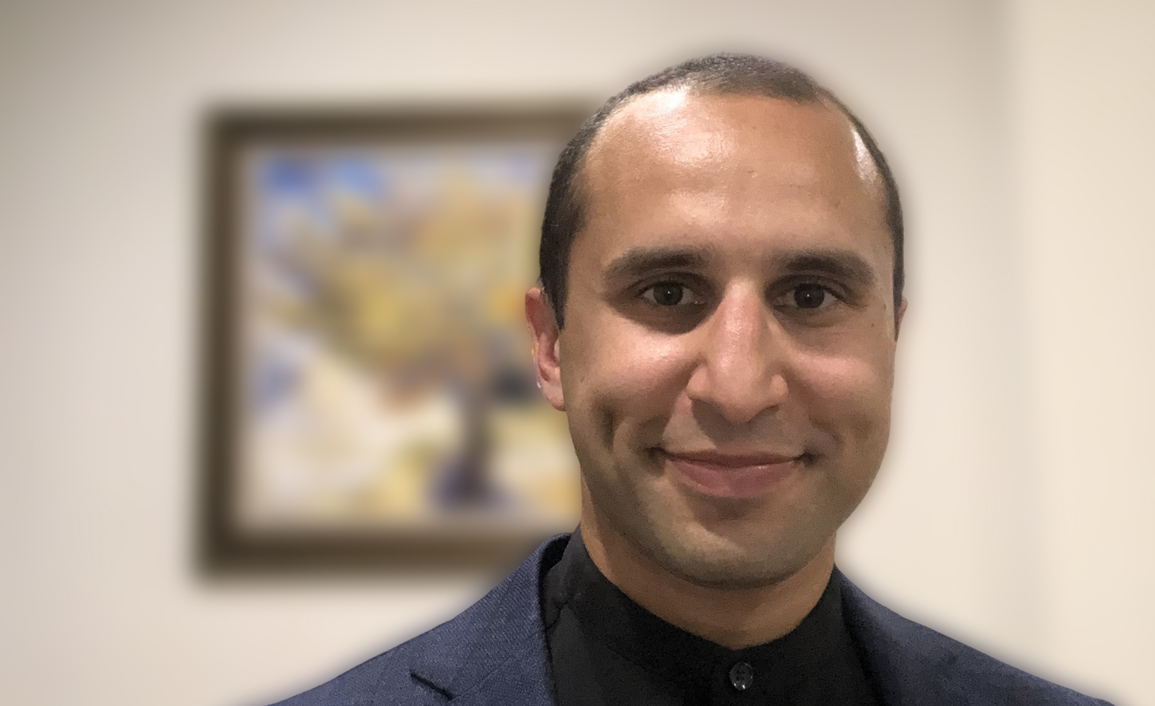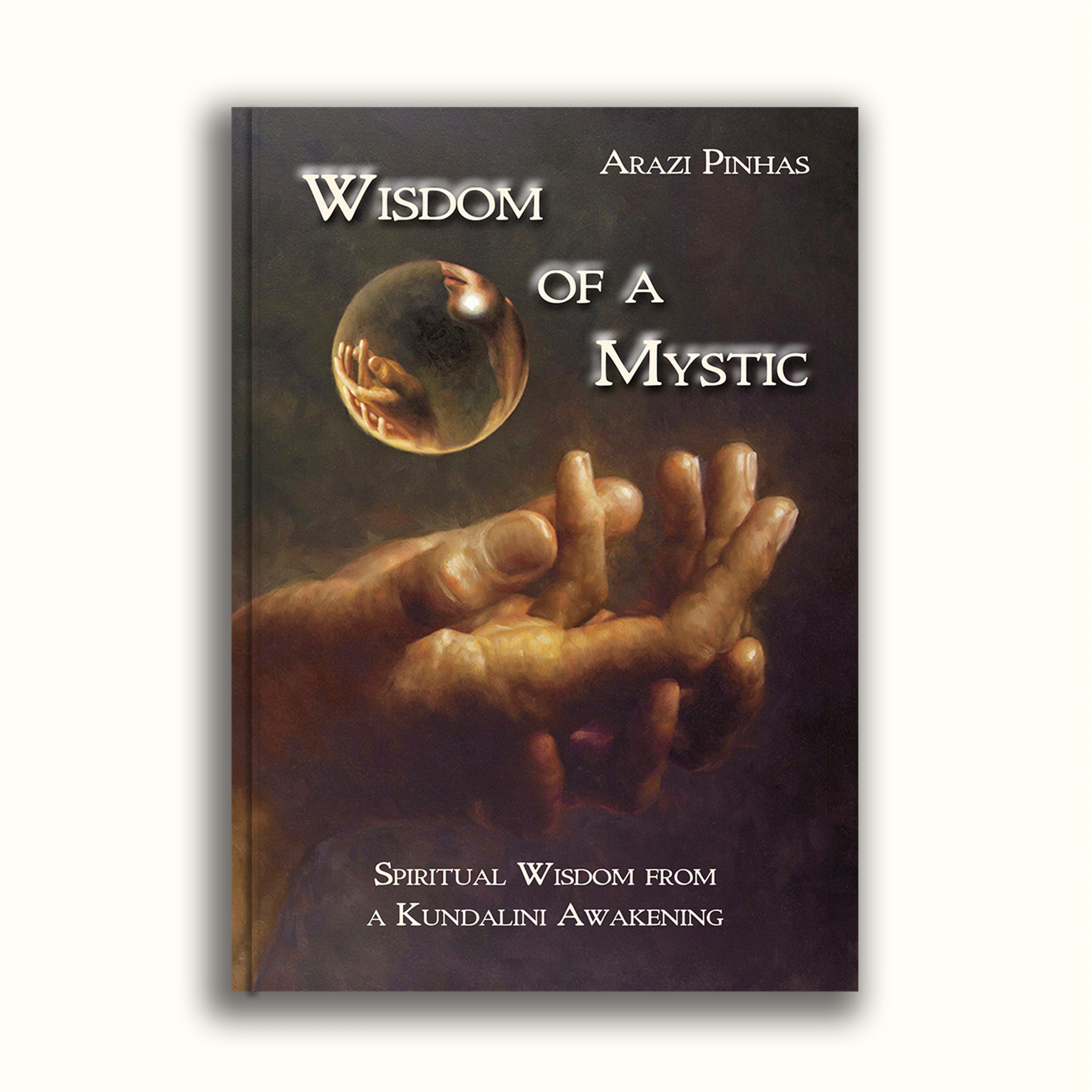
Arazi Pinhas' new book of verses touches on everything from the nature of the mind to devotional love
The book is a celebration of vulnerable authenticity and a testimony to the fact that our darkest hours can spark our most meaningful transformations.
Arazi Pinhas
Arazi Pinhas’ new book is inspired by a profound process of spiritual development that he underwent at Cambridge which taught him about himself and his place in the world.
Wisdom of a Mystic: Spiritual Wisdom from a Kundalini Awakening is described as an invitation “to look inward, to the depths of consciousness, as a way to connect with the richness of our own being”.
The book, which is self-published and is available on platforms such as Amazon, Kobo, Apple Books and Google Play, is a compilation of 120 verses. Arazi uses verse and images to evoke the idea that “the more significant truths are always the simplest”. He says: “It reminds us that the wisdom we seek is hidden in plain sight and that spirituality can – and should – be informed by our most mundane experiences. The book is a celebration of vulnerable authenticity and a testimony to the fact that our darkest hours can spark our most meaningful transformations.”
The book is inspired by what he learned from two relationships at Cambridge, including one with a former partner.
 He describes a process of “spiritual awakening” after he separated from his partner in 2018 and through that process he eventually discovered what the two relationships had taught him about himself. His partner had departed for another country, which left him very distraught, unable to eat or sleep for three days. “She had been the centre of my existence and I fell into a profound sadness,” he says. “The mind dies when it is confronted by a reality it can’t solve, a situation which it has no control over.” He has since learned that his feelings for her were a projection on her that came from within him, what he calls “the quality of his own heart”. He says that, in part, “deep down we are all trying to escape our basic aloneness, but it is very hard for the human mind to accept that”.
He describes a process of “spiritual awakening” after he separated from his partner in 2018 and through that process he eventually discovered what the two relationships had taught him about himself. His partner had departed for another country, which left him very distraught, unable to eat or sleep for three days. “She had been the centre of my existence and I fell into a profound sadness,” he says. “The mind dies when it is confronted by a reality it can’t solve, a situation which it has no control over.” He has since learned that his feelings for her were a projection on her that came from within him, what he calls “the quality of his own heart”. He says that, in part, “deep down we are all trying to escape our basic aloneness, but it is very hard for the human mind to accept that”.
The work is a book of verses, inspired by Eastern ideas from Bakhti Yoga about self-realisation and the need to embrace the heart rather than the mind, to focus on appreciation of others because of who they are rather than on what you can get from them. As such it touches on everything from the nature of the mind to devotional love. “I want to plant a seed,” says Arazi, who has spent time living alone along the Indo-Tibetan border in the Himalayas. “The message of the book is to bring the human being to a heart-centred way of living. Now we are living based on the mind. I would like to see more activities that are not based on transactions – people giving of themselves to another person because of something magnificent in them, rather than for what they can get back from them.”
Childhood and undergraduate years
Arazi [2015] was born in Philadelphia, but moved many times during his childhood with his sister and mother, who suffered from anorexia. He spent much of his early childhood on a small Kibbutz in Israel where he spent his afternoons milking cows, feeding ants and caring for horses, but moved back and forth between the US and Israel in his later childhood, spending four years at high school in Philadelphia.
He found constantly changing of countries and cities disruptive and lonely and living with a parent with a mental health problem challenging. Moreover, his family’s lack of income meant that dinner was sometimes ice cream or boiled zucchini.
Education, which provided some kind of stability and escape, became his main focus. His grandfather encouraged him to do a four-year physics degree at the University of Pennsylvania in Philadelphia. Arazi himself says he was not so much motivated by the subject as by the desire to escape from the desperate situation he was in at home.
At university he spent long hours in the library studying and said this was due to “self-imposed pressure”. He was able to do some astrophysics research projects, including in Israel where he spent time at the Weizmann Institute of Science. He also studied physics through a study-abroad programme at Oxford for a year. An Oxford tutor encouraged him to apply for a master’s at Cambridge which led to his PhD in Astrophysics. He formed a close relationship with his supervisor who encouraged him to develop both academically and personally.
Cambridge
At Cambridge Arazi began to question aspects of his life, who he was and his place in the world. His PhD was on exo-planets and the atmospheres that surround them. His research involved exploring the chemical and thermal properties of those atmospheres. “Exo-planetary science is still a relatively young domain compared to other fields of astrophysics. The chance of making a meaningful contribution is therefore higher,” says Arazi.
He graduated in 2019 and is now doing postdoctoral work in bioengineering at the University of Washington. He is very grateful to Gates Cambridge as he wouldn’t have been able to do his PhD without the scholarship. “Cambridge was a rare Eden for me, and I was blessed to have grown in her gardens for some time,” he says. “It was a garden for my heart. Heart to me is everything, because the world is nothing without it. For you can have a world with heart, and no mind, and still have a beautiful world. However, you cannot have a world of mind, and no heart, and expect beauty in the world,” says Arazi.












